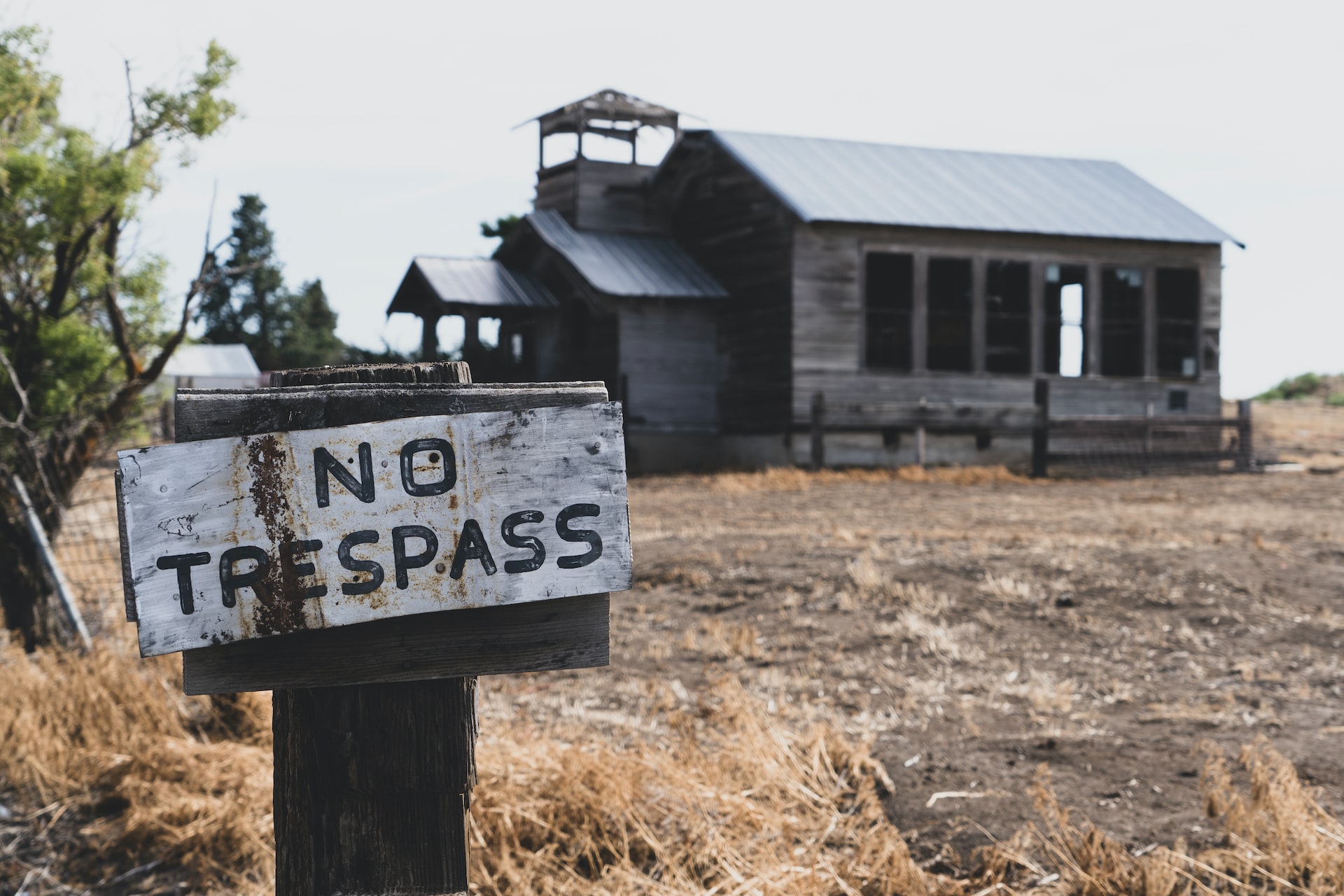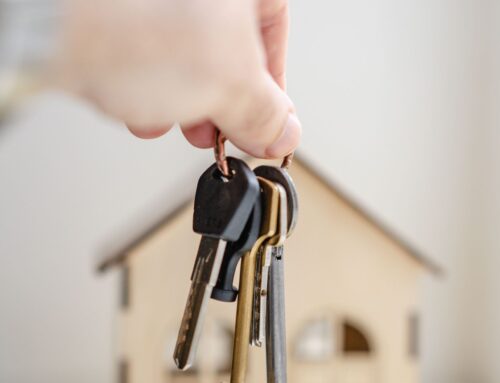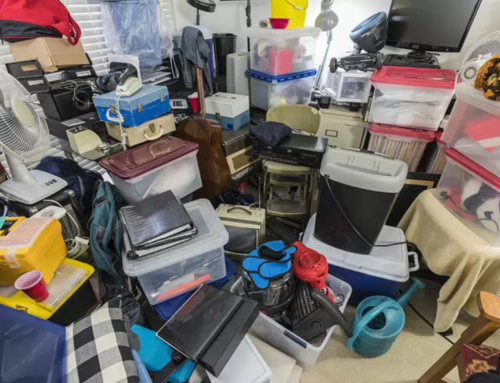Squatters can be a menace. If you have an unoccupied property, squatters may move in and refuse to leave. They can occupy your property without permission and cause extensive damage, often making it uninhabitable.
Unfortunately, getting rid of them can be difficult and costly. More so, if the squatters are enjoying more than just the use of your property, they are utilizing your utilities as well.
And many property owners only realize that there are squatters living on their property after receiving a utility bill for an unoccupied property. A situation like this can be not only costly but also frustrating.
However, there are measures you can take to deal with this situation in the most effective manner possible. This article will cover everything you need to know about turning off utilities on a squatter, how to get rid of squatters, what laws apply, and how to protect yourself from squatters in the future.
What Is a Squatter?
According to the U.S. Department of Housing and Urban Development, a squatter is someone who lives in a home without permission or legal right to do so.
Squatters are not to be confused with tenants who have fallen behind on their rent. Squatters, under the law, have no rights to the property that they occupy. They do not pay rent, nor do they enter into any type of formal lease agreement with the owner.
Squatters may be former tenants, or they may even be someone who has never had any connection to the property. Squatters may not even be aware that they are squatting.
They may have moved into a house thinking that they were renting from the real owner, but the person who was collecting their rent was actually a scam artist.
Regardless of how they got there, squatters do not have a legal right to stay on the property.
When Is a Squatter Not a Squatter?
Squatting is when someone enters a property and claims it as their own, even though they do not have permission to do so. This can happen because they don’t know the law or because they believe they can get away with it.
But sometimes squatters aren’t actually squatters at all.
In some jurisdictions, there are laws that specifically recognize squatters’ rights, also referred to as adverse possession. This means that if someone lives on a piece of property for a long enough period of time, they can gain legal ownership over it. Although adverse possession laws are in place in many states, the rules vary widely by jurisdiction.
Squatters’ rights also typically apply when the squatter is in possession of the property. This means that the person has to be physically present on the property. So if someone moves into an abandoned or uninhabited property and lives there for a year but then leaves for six months, he or she loses any legal claim to the property.
Overall, squatters’ rights are a complicated legal issue with many gray areas. If you’re considering claiming squatter’s rights to a piece of property, it’s important to speak with a real estate attorney beforehand to fully understand your legal options and risks.
How Does Adverse Possession Claim Work?
Squatters must follow the specific rules of an adverse possession claim to gain legal title to a property. Each state has different requirements for what is considered adverse possession, but most states require five elements:
- The squatter’s use of the property must be exclusive, meaning that no one else can use it during the time of their stay
- The squatter’s occupancy must be open and notorious or well-known to others in the community
- The adverse possessor must live on the land for a continuous period of time, which varies by state but is typically 5 years
- The squatter’s occupation must be under claim of right or with an honest belief that they own the land
- The squatter must pay all property taxes and fees associated with the land during the adverse possession period
In order to gain legal ownership over a piece of property through squatting, someone would need to follow the specific rules and regulations of their state.
Can You Turn Off Utilities on a Squatter?
The short answer is yes, you can turn off utilities on a squatter. The long answer is that it depends on the legal situation of your home and what state you live in.
If you live in a state where squatters have rights to the property they’re squatting on, then no, you can’t just go ahead and shut off their utilities. You’ll need to get a lawyer involved and go through the proper legal channels for eviction.
If you live in a state where squatters don’t have any rights to the property they’re squatting on, then yes, you do have the right to shut off their utilities without going through any legal channels.
But don’t go ahead and turn off their utilities just yet. If your squatters have been living in your home for a long time, they may be considered tenants. Even if they’re not paying rent or utility bills, the law may consider them to be illegally occupying the property by virtue of the fact that you haven’t asked them to leave.
If this is the case, you’ll need to evict them (this can be done in a matter of days or weeks), and then you’ll have the right to shut off the utilities. In short, if you’re unsure about the legalities of your situation, it’s best to consult a real estate attorney before taking any action.
When Can You Turn the Utilities Off?
You aren’t required to keep the utilities on for an occupant who you’re trying to evict. Once you’ve filed for eviction, you may shut off the electricity and water, as long as this doesn’t violate a local ordinance or your state law.
You should give the occupants notice that you’re going to shut off the utilities, and you should specify when they’ll be turned off. Once they’ve been shut off, don’t turn them back on until the occupants have moved out or you’ve reached an agreement with them about paying for utility services.
You can only turn the utilities off once you have filed for eviction and given the Notice to Quit to the occupants. You must specify when the utilities will be turned off in order to give them time to move out or make other arrangements.
How to Turn Off the Utilities?
Contact the utility companies and ask them to shut off the services. They may require that you submit a letter stating the reasons why you want the utilities turned off and will probably require that the occupants be given reasonable notice before turning them off. You’ll also have to pay any past-due bills before they shut off the utilities.
How Do I Evict a Squatter?
There are situations where you may need to evict a squatter from your property, such as:
- If you’ve inherited the house and the person living in it isn’t legally allowed to
- If they have no legal right to be there (eg. if they’re squatting)
- If they’ve been causing damage or problems that affect your ability to live there
To evict a squatter, you first need to determine that they are actually a squatter. This means that they don’t have permission to be on the property, they have never had permission to be on the property, or they are not legal tenants.
That said, there are several ways you can go about evicting a squatter from your property.
Talk to the Squatter
The first thing you should do is talk to the squatter. If they are truly squatting on your property, then chances are they don’t want any trouble. Talk to them and explain that you own the property and would like for them to leave. If they’re reasonable, they’ll likely oblige without much of a problem.
Call the Police
If you’ve asked the squatter politely to leave but they won’t, then you can call the police. They can come to your house and arrest the squatters for trespassing if they don’t have permission to be on your property. If they do have permission from a previous owner, you’ll need to get that agreement in writing before the police can remove them from the property.
Bear in mind, though, that you will need to first prove that you actually own the property in order to get them removed. This means having proof of ownership, such as a deed or mortgage statement, ready when you call them.
Use Self-Help
If neither talking nor involving law enforcement works, some states allow what’s called “self-help” measures. This generally means you can go onto the property and remove the squatters yourself as long as you don’t use force or threaten them in any way.
If you choose to use self-help measures, make sure you check your state’s laws first to see if they’re allowed. Also, be aware that if the squatters claim you used force or threatened them at any point while removing them from your property, they can report it to the police and have you charged with assault.
One way you can go about doing this is by changing the locks on all outside doors so they can’t get in. You may also want to block off any entrances with materials like plywood or fencing. By taking this approach, you can avoid any potential confrontations, violence, and damage to your property.
However, first make sure to let the squatters know that your intent is to remove them, not hurt them. Use signs or some other form of communication so they have time to prepare for their removal and can take any belongings with them.
Be aware that if the squatters claim you used force or threatened them at any point while removing them from your property, they can report it to the police and have you charged with assault.
So if you choose to use self-help measures, make sure you check your state’s laws first to see if they’re allowed. And if you’re dealing with a stubborn squatter, be sure to carefully document the removal process, preferably with a video camera.
Get an Eviction Notice
The best way to remove squatters from your property is by following the law and getting an eviction notice. The eviction process varies from state to state, but generally, the first step is to send a notice to quit, which informs the squatters that they have a certain number of days (usually between three and 30) to move out of your property. If they fail to leave within this time frame, you can go through your local court system for an official eviction order.
File an Unlawful Detainer Lawsuit
In some cases, such as when the squatters are particularly belligerent or refuse to leave after you’ve served them with an eviction notice, you may need to file an unlawful detainer lawsuit. This type of case asks the court for permission to physically remove the squatters from your property and can be a complicated legal process.
And because the process varies from state to state, it’s best to consult with a local attorney before taking this step. Once you file your case, the court will issue a summons and complaint, both of which must be personally served to the squatters. The summons lets them know that you are suing them for possession of your property, and the complaint lays out the details of your case.
Generally speaking, evicting squatters can be a complicated process, so it’s important to seek professional help if you can. Also, be aware that the laws of your state may grant squatters certain rights under certain circumstances, and you may be required to give them notice or follow a specific legal procedure.
How to Keep Squatters from Trespassing in the First Place
There are several ways to keep squatters from trespassing in the first place:
Lock Doors, Gates, and Garages
If you have a vacant property, you should lock up all doors, gates, and garages. Even if the property isn’t vacant, make sure to lock everything every time you leave. If squatters can’t get in easily through a door or window, they may not go to the trouble of finding another way, like breaking a window or scaling a fence.
If you leave doors or windows open, you could be considered to have abandoned possession and given a squatter permission to move in.
Clear Your Property of Any Debris
If there is an easier way for squatters to take residence on your property is by leaving it unkempt. Having rubbish, old furniture, old appliances, and junk mail on your property can create an impression that the space is vacant and up for grabs. If you want to avoid giving squatters any ideas, keep your property spick-and-span.
The cleanliness of your property also extends to the inside of your home. If you have any old furniture or appliances, it’s a good idea to move them into storage. This could prevent squatters from moving in and making your home their own.
Install an Alarm System
The best way to discourage squatters from making a move on your property is by installing an alarm system. Having a security system in place can deter intruders as it lets them know that you’re monitoring the premises, and they won’t be able to get away with breaking and entering. It can also help you keep an eye on your home while you’re away and give you peace of mind.
Post No Trespassing Signs
You can prevent squatters from moving into your home by posting no trespassing signs. A sign that clearly states that the property is private and under surveillance lets potential squatters know that they aren’t welcome on your land.
Get To Know Your Neighbors
If you’re away from home for an extended period of time, let your trusted neighbors know so they can keep an eye on your property. They can collect your mail, mow the lawn, or turn lights on and off to make it look like someone is home.
Do Regular Checks of Your Property
In case you live close to your rental property, drive by frequently to make sure everything looks the way it should.
If you notice any strange activity or see that something has been tampered with, or if there are any signs of forced entry, contact the police immediately.
However, if you live further away and you can’t check on your property regularly, consider hiring a professional property management company to do regular checks for you.
Wrapping Up
Squatters can be a real pain, but there are ways to protect your rental property from them. Be proactive and take steps to prevent squatters from moving in, such as changing the locks regularly and keeping the property well-maintained. If you do find yourself with squatters on your hands and worse, they are using your utilities, you have the legal right to shut off the utilities as long as you follow the proper legal procedures.









 Highest Cash Offer is a real estate solutions company. Our team of experts specialize in assisting homeowners with a wide variety of solutions to any real estate problem. Whether we buy your house for cash or not, our goal is to help you get the desired outcome you deserve.
Highest Cash Offer is a real estate solutions company. Our team of experts specialize in assisting homeowners with a wide variety of solutions to any real estate problem. Whether we buy your house for cash or not, our goal is to help you get the desired outcome you deserve.